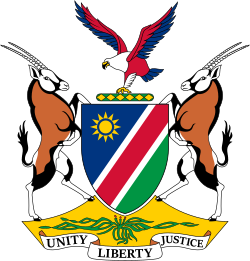 |
|---|
Parliamentary elections were held in South West Africa on 31 October 1934. [1] The whites-only election saw a victory for the United National South West Party, which won eight of the twelve elected seats in the Legislative Assembly.
 |
|---|
Parliamentary elections were held in South West Africa on 31 October 1934. [1] The whites-only election saw a victory for the United National South West Party, which won eight of the twelve elected seats in the Legislative Assembly.
The Legislative Assembly had 18 seats, of which twelve were elected in single-member constituencies, and six were appointed by the territory's Administrator, David Gideon Conradie. The twelve constituencies were Gibeon, Gobabis, Grootfontein, Keetmanshoop, Kolmanskop, Luderitz, Okahandja, Otjiwarongo, Swakopmund, Warmbad, Windhoek Central and Windhoek District. [2]
Three seats, Gibeon, Kootmanshoop and Kolmanskop, were won unopposed by the United National South West Party. [2] Of the six members appointed by Administrator, two were from the German League and four from the United National South West Party, resulting in a clear majority for the latter in the second consecutive election. [2]
| Party | Votes | % | Seats | +/– | |
|---|---|---|---|---|---|
| United National South West Party | 2,168 | 52.20 | 8 | +1 | |
| German League in South West Africa | 558 | 13.44 | 1 | –3 | |
| Economic League | 808 | 19.46 | 1 | New | |
| Independents | 619 | 14.90 | 2 | +1 | |
| Appointed members | 6 | 0 | |||
| Total | 4,153 | 100.00 | 18 | 0 | |
| Source: Ngavirue | |||||
The results exclude the figures for Swakopmund, where an Independent candidate was elected with a 32-vote majority over their Economic League opponent. [2]